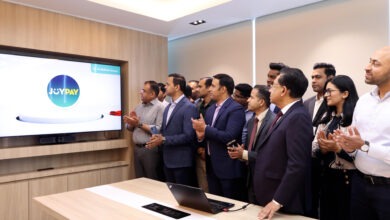Government agencies team up to improve public transport in Kuwait
The Cabinet's Services Committee is set to meet with relevant authorities to finalize a roadmap for enhancing the road network and public transportation, aiming for Cabinet approval to implement improvements by early 2025.

• Partial road maintenance projects and mass transportation for school students have contributed to achieving two main objectives: ensuring safety and security for students, and reducing traffic accidents while alleviating congestion on the roads leading to schools at various educational levels.
To support the government’s infrastructure development efforts, various ministries and state agencies, led by the Council of Ministers, are collaborating to turn plans and studies into action. This includes the Ministries of Interior, Finance, Communications, Public Works, Fatwa and Legislation, as well as the Public Authority for Roads and Land Transport, the Public Environment Authority, and the Civil Service Commission. Their goal is to enhance public transportation in Kuwait while also addressing the traffic crisis across the nation’s roadways, as reported by Al Jarida newspaper.
This follows the important meeting that the Cabinet’s Services Committee will hold with the relevant authorities to develop a final vision for the roadmap to enhance the road network and improve public transportation. This preparation aims to submit the plan to the Cabinet for approval soon, allowing government agencies to begin implementing the new system to improve the country’s road network and traffic system at the start of next year, 2025.
Sources indicate that the new plan to enhance the road network and traffic system is based on a set of advanced international studies and adheres to approved specifications for traffic engineering. The government is fully committed to addressing traffic congestion in various governorates through short-, medium-, and long-term plans that ensure an advanced infrastructure, achieving the vision of a new Kuwait regarding traffic safety systems and high-quality infrastructure.
Additionally, each government agency has developed its proposals for the three plans, which have been approved by the Services Committee in the Cabinet. This process is aimed at reaching final approval from the Council so that the relevant government agencies can launch their projects accordingly.
Short-term plan to address traffic crisis
The sources explained that the short-term plan has begun partial implementation on the ground to address the traffic crisis and congestion in all governorates. This was evident through the application of flexible working hours and the third fingerprint system, with evening working hours set to begin on January 5, 2025.
Additionally, partial road maintenance projects and mass transportation for school students have contributed to achieving two main objectives: ensuring safety and security for students, and reducing traffic accidents while alleviating congestion on the roads leading to schools at various educational levels.
The Ministries of Interior and Education, along with the Public Transport Company, have collaborated to provide the best buses and promote awareness of the importance of mass transportation for students.
The sources confirmed that preliminary statistics revealed the effectiveness of flexible working hours in reducing traffic jams, according to studies conducted by the Ministry of Interior and the Civil Service Commission in cooperation with relevant government agencies.
Monitoring from traffic control cameras, spread across the country, includes about 300 cameras and locations, indicated that flexible working hours positively impacted the reduction of congestion and bottlenecks, lowered traffic accidents, and improved access to business premises. This positive trend is expected to increase with the introduction of evening working hours, which will help distribute traffic across two periods—morning and evening—thus reducing pressure on the infrastructure and road network.
This comes in light of the signing of eighteen contracts by the Ministry of Public Works to repair highways and internal roads in the governorates.
Medium-term plan to ease traffic congestion
The sources added that the medium-term plan has also begun part of its implementation by opening the largest number of new entrances and exits on highways and internal roads leading to business premises, schools, government entities, and public facilities in order to avoid bottlenecks. Additionally, temporary roads are being developed in some governorates to address the traffic crisis until the completion of long-term projects.
Significant road projects
The sources added that the government’s long-term plan includes significant road projects aimed at developing the road network through the creation of radical solutions and modern systems, such as the Cairo Road project, the expansion of the Fourth Ring Road through adjacent areas, and the construction of new tunnels under bridges. These efforts will help alleviate the traffic crisis and involve international companies.
Furthermore, there will be expansion and development of the second, third, and fifth ring roads. The development process has already begun in parts, including the Avenues Bridge and Damascus Street.
It is noteworthy that the asphalt mixture used in all new road projects will adhere to long-term global specifications, preventing the volatilization of gravel to achieve sustainable development through an advanced infrastructure pillar, aligning with the state’s development vision.
The sources said that the short-, medium-, and long-term plans are awaiting approval from the Council of Ministers for the new traffic law, which will be a major supporter of these initiatives aimed at achieving traffic safety. Additionally, they are waiting for financial appropriations to support projects aimed at developing the road network, which is expected to be realized soon.
The sources indicated that the Council of Ministers discussed the statements and recommendations provided by the concerned authorities regarding ways to address the problem of traffic congestion.
The government has tasked the Ministry of Interior, in coordination with the Ministries of Finance, Works, Education, and Transport, as well as the Kuwait Municipality and the Public Authority for Roads, to move forward with implementing the necessary measures that ensure addressing the traffic problem across its short-, medium-, and long-term stages while finding appropriate solutions to achieve sustainable development and traffic safety.
The sources explained that the report from the Ministerial Services Committee will be presented in full to the Council of Ministers, including a visual presentation of the three plans aimed at improving the road and public transport network through large strategic projects, in cooperation with international companies that align with the vision of “New Kuwait.”












